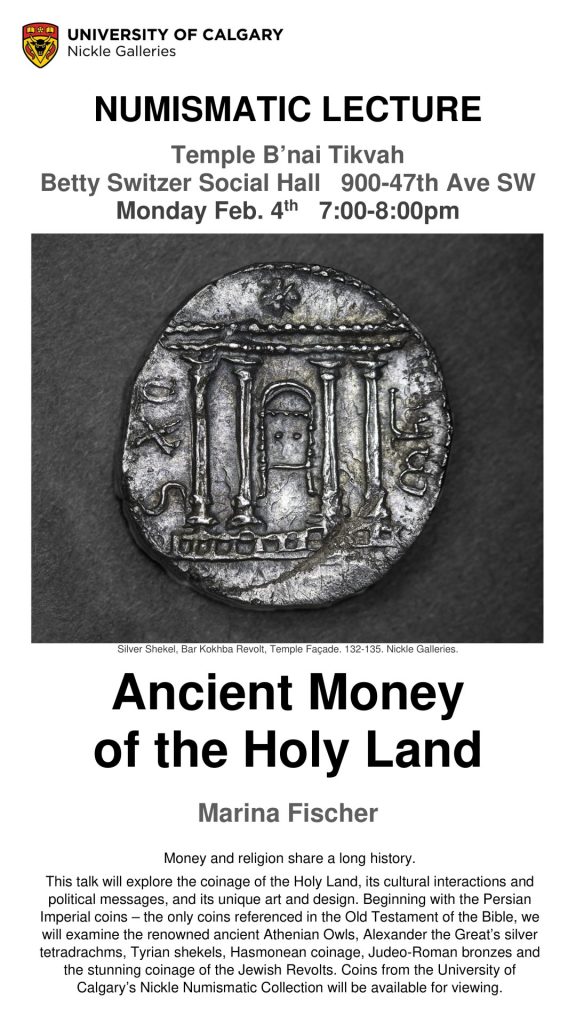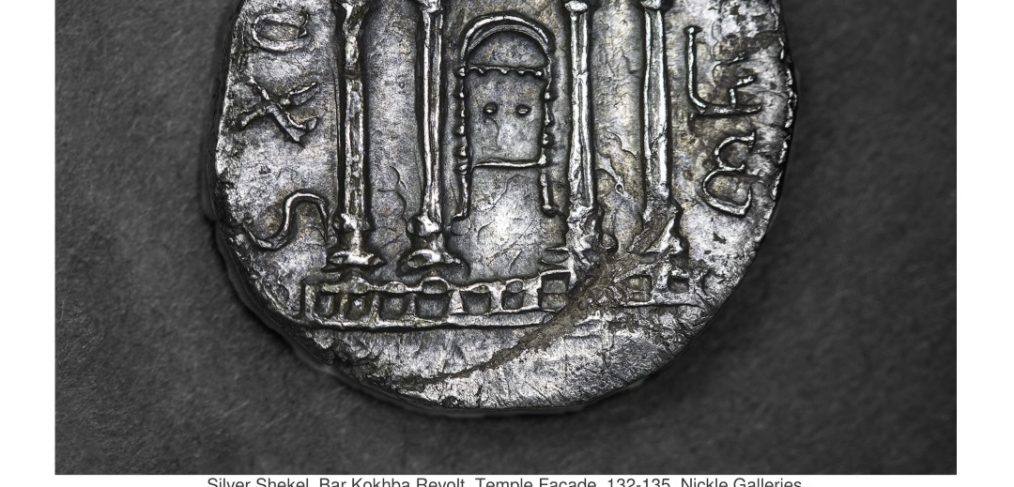
ANCIENT MONEY OF THE HOLY LAND
“Money and religion share a long history” – Marina Fisher
“Money and religion share a long history” – Marina Fisher
This talk will explore the coinage of the Holy Land, its cultural interactions and political messages, and its unique art and design. Beginning with the Persian Imperial coins – the only coins referenced in the Old Testament of the Bible, we will examine the renowned ancient Athenian Owls, Alexander the Great’s silver tetradrachms, Tyrian shekels, Hasmonean coinage, Judeo-Roman bronzes and the stunning coinage of the Jewish Revolts. Coins from the University of Calgary’s Nickle Numismatic Collection will be available for viewing.
Marina Fischer is Collection Specialist for Numismatics at Nickle Galleries, University of Calgary. She holds an M.A. in Ancient History with specialization in Art History from the University of Calgary, and her research focuses on ancient Greek and Roman coinage. Marina is also Instructor with Continuing Education, and is a recipient of 2018 University of Calgary Teaching Award.

